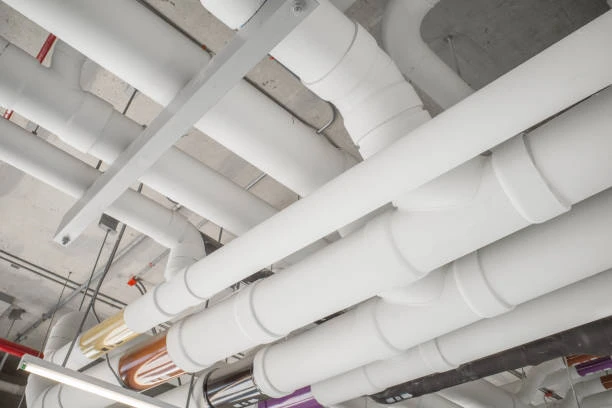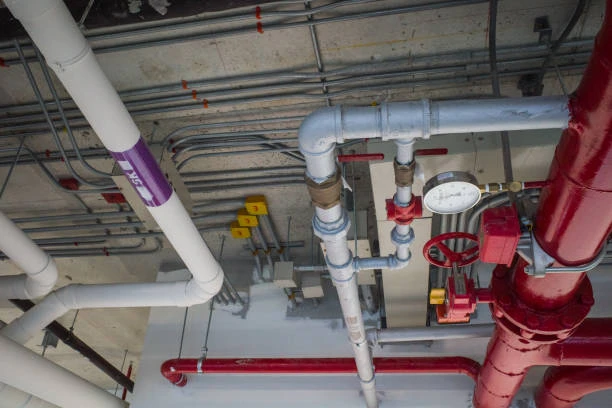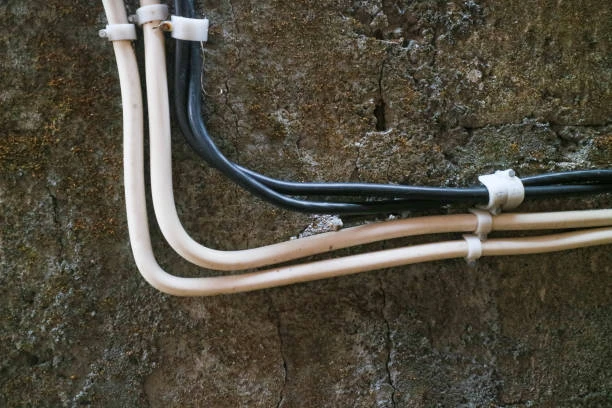Introduction: How Copper Ball Valves Survive Moisture-Rich Conditions
Humidity and moisture are constant challenges in plumbing and heating systems. Over time, they can degrade metal components, leading to system inefficiencies, leaks or failures. In such environments, copper ball valves offer proven corrosion resistance and long-term durability, especially when used with a safety valve for water heater and other critical components. This article examines the corrosion-resistant properties of copper ball valves in humid environments, their structure, applications, buying considerations, and more.
Whether installed in a coastal residence, boiler room, or water heater system, copper valves continue to provide reliability where other materials may deteriorate quickly. Read on to understand how they work, how to choose them, and how they compare with plastic alternatives.
Frequently Asked Questions (FAQ)
1. Why is corrosion resistance important in water heater systems?
Water heaters often operate in damp or enclosed spaces where condensation forms. Corrosion can weaken connections and valves, increasing the risk of failure and leaks. Valves with corrosion-resistant materials help ensure system safety and longevity.
2. Are copper ball valves suitable for humid environments?
Yes. Copper and its alloys (such as brass or bronze) naturally resist corrosion, especially when exposed to moisture, making them ideal for high-humidity areas.
3. What role does a safety valve for water heater play?
A safety valve for water heater prevents overpressure by automatically releasing excess steam or water. It protects the tank from rupturing and works best when integrated with durable copper valves.
4. How long do copper ball valves last in moist conditions?
When properly installed and maintained, copper ball valves can last 20 years or more, even in humid climates.
5. What maintenance is needed for copper valves in wet environments?
Occasional inspections to check for mineral buildup or corrosion at joints are recommended. Applying sealants or using plated models can further extend service life.
Definition and Key Features of Copper Ball Valves
A copper ball valve is a mechanical device that regulates fluid flow using a hollow, rotating ball housed within a copper or copper-alloy body. It features a quarter-turn operation, allowing users to quickly shut off or enable flow with a simple lever motion.
Key Features:
Corrosion Resistance: Copper naturally forms a patina that protects it from further degradation.
Durability: Long service life with minimal mechanical wear.
Smooth Operation: Internal ball rotates freely, maintaining consistent flow.
Temperature Tolerance: Handles both hot and cold water with ease.
Compact Design: Fits neatly into tight plumbing systems.
Thanks to these features, copper valves are ideal in areas exposed to dampness and varying temperatures.
Common Applications and Industries
Copper ball valves are widely used in systems where durability, corrosion resistance, and precise control are important. Humid environments such as basements, coastal zones, boiler rooms, and water heater systems demand materials that do not rust or fail under moisture exposure.
Typical Applications:
Water Heater Systems
Prevents corrosion and ensures seamless integration with the safety valve for water heater.Residential Plumbing
Used in kitchens, bathrooms, and laundry rooms where high humidity is common.HVAC Systems
Controls flow in both heating and cooling systems, often in damp utility rooms.Marine Plumbing
Resists salt air corrosion in ships and coastal infrastructure.Greenhouses and Agriculture
Operates effectively in moisture-rich soil or irrigation setups.Industrial Washdowns
Endures frequent exposure to steam or cleaning chemicals.
Copper ball valves perform well across all these applications due to their superior corrosion-resistant properties.
Buying Guide: How to Choose the Right Copper Ball Valve
Selecting the correct valve for a humid environment involves evaluating both material quality and system compatibility. Below are some important factors to consider.
1. Material and Finish
Brass or bronze bodies offer added strength and corrosion resistance. Chrome or nickel plating further protects against environmental wear.
2. Seal and Seat Materials
PTFE (Teflon) or graphite seals resist moisture and high temperatures, making them suitable for integration with a safety valve for water heater.
3. Corrosion Protection
Look for valves with anti-corrosion coatings or self-protective patinas. Avoid untreated steel or iron components in humid settings.
4. Pressure and Temperature Ratings
Ensure compatibility with your system’s demands. Water heaters, for example, require valves rated for high pressure and temperature.
5. Certification Standards
Choose valves that comply with ISO, ASTM, or EN standards. Certified valves have been tested under various conditions, including humidity.
6. Handle Material
Opt for handles made from insulated or coated steel to prevent corrosion and ensure safe manual operation.
Taking these considerations into account will help extend the lifespan of your copper valves, especially when used in moisture-exposed environments.
Installation Tips for Humid Conditions
Proper installation is essential for preventing premature valve failure in damp or enclosed spaces.
1. Use High-Quality Sealants
Avoid standard thread tape in wet areas. Choose PTFE-based sealants resistant to moisture.
2. Provide Ventilation
Install valves in areas where air can circulate, reducing the chances of standing moisture.
3. Position Above Floor Level
Avoid placing valves where they may sit in pooled water or condensation.
4. Avoid Direct Contact with Dissimilar Metals
Prevent galvanic corrosion by avoiding direct connection with incompatible materials like steel or aluminium without proper insulating unions.
5. Test After Installation
Always run a pressure and temperature test to check for leaks and functional responsiveness before system operation begins.
Correct installation ensures copper ball valves retain their corrosion resistance and performance for many years.
Comparison: Copper Water Valve vs Plastic Valve
| Feature | Copper Water Valve | Plastic Valve |
|---|---|---|
| Corrosion Resistance | Excellent – natural resistance to moisture | Very good – no metal components |
| Heat Resistance | High – suitable for hot water heaters | Limited – may warp under high heat |
| Mechanical Strength | Strong and impact-resistant | Lower strength, prone to cracking |
| Longevity | 20+ years with proper care | Typically 5–10 years depending on use |
| Environmental Tolerance | Performs well in fluctuating climates | May degrade in UV or high-heat environments |
| Cost | Higher initial investment | Lower upfront cost |
| Certifications Available | Broad compliance with global standards | Often limited to specific regions |
| Ideal Use | Boilers, water heaters, HVAC | Garden, irrigation, light residential |
While plastic valves are economical and easy to install, copper valves offer better durability and safety in humid and high-pressure environments.
Conclusion: Why Copper Valves Are Ideal for Moist Environments
In moisture-rich or humid environments, valve materials must be carefully chosen to ensure system safety and longevity. Copper ball valves offer outstanding corrosion resistance, structural strength, and heat tolerance—making them a top choice for water heaters and related systems. When paired with a reliable safety valve for water heater, they help maintain pressure control while preventing leaks and corrosion.
By selecting the right materials, following sound installation practices, and performing regular maintenance, you can rely on copper ball valves to perform efficiently for many years, even in the most challenging environments.
Connect
IFAN is a trusted Chinese manufacturer with over 30 years of experience in producing copper valves, plastic piping, and fittings for global markets. Whether you need a safety valve for water heater, corrosion-resistant copper fittings, or custom piping systems, IFAN offers durable, cost-effective solutions tailored to your needs.
We respond to emails or faxes within 24 hours and welcome your calls at any time.
- For more information,pls visit our webside https://waterpipefitting.com/
Pls Mailto: [email protected]
Whatsapp: +86 15088288323
Let IFAN help you design plumbing systems that withstand heat, pressure, and moisture—without compromise.
IFAN Product International Standards
IFAN products are manufactured under a wide range of international standards to ensure performance, safety, and compliance. These include:
ISO 15874, EN 15874, ASTM F2389, DIN 8077/8078, GB/T 18742, NBR 15884, ISO 15494, EN ISO 15494, ASTM D1785 SCH40/SCH80, ASTM F441/F441M, DIN 8061/8062, AS/NZS 1477, CSA B137.3, JIS K6741, and more.
Whether for residential, industrial, or commercial use, IFAN copper valves deliver consistent results backed by global standards.














Recent Comments